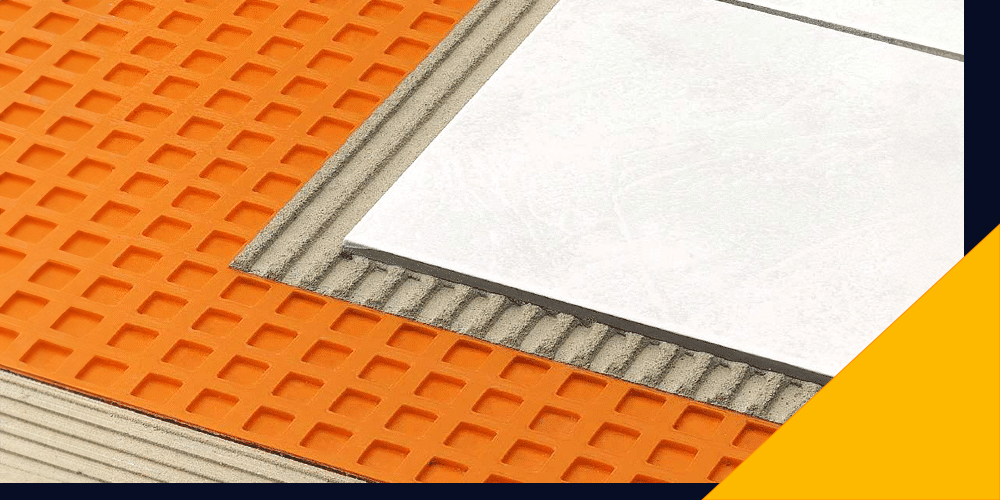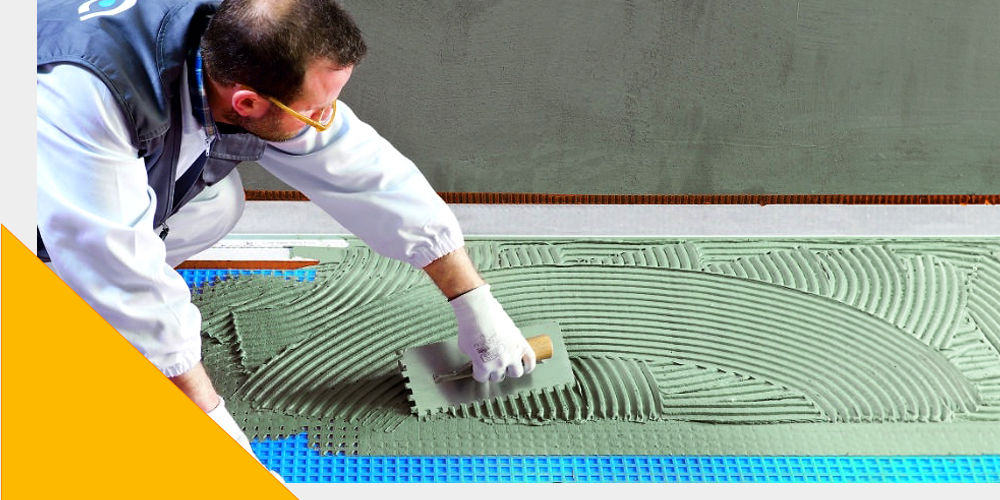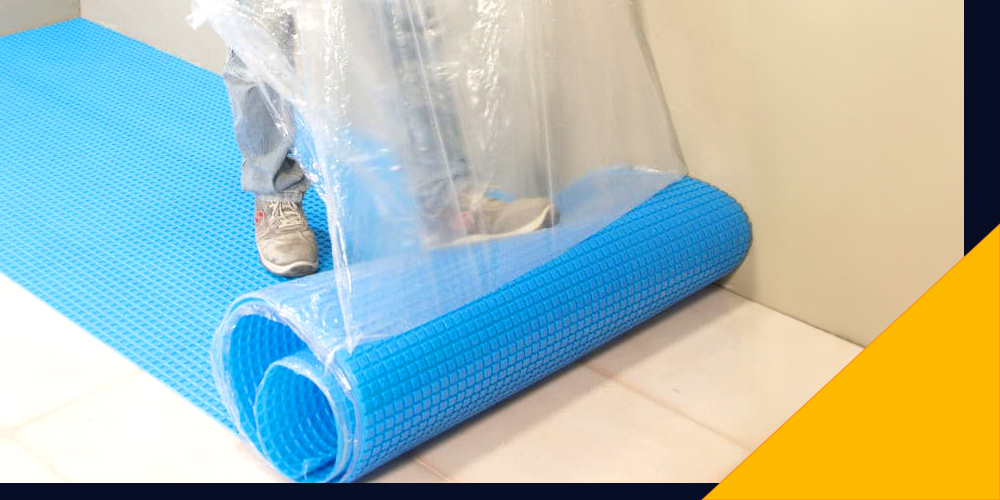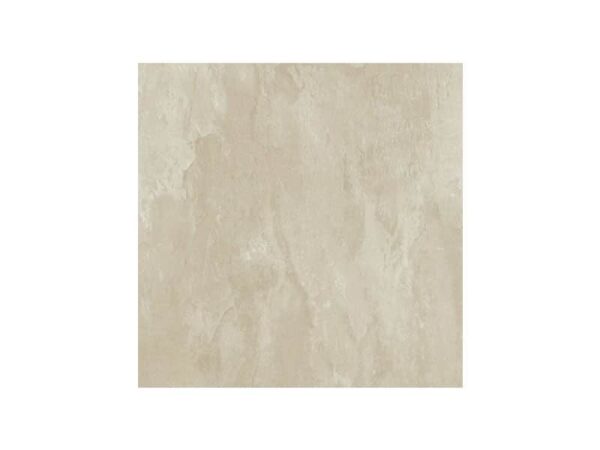Why Use
Decoupling
Systems When
Floor Tiling
Decoupling systems play a vital role in floor tiling, providing stability and durability to tiled surfaces. These membranes are designed to neutralise tensions between the substrate and the tiles, thereby preventing stress cracks and enhancing tile longevity. By absorbing stress and allowing gradual moisture to escape through air spaces, decoupling membranes ensure that tiles remain intact over time.
One notable application of decoupling membranes is with underfloor heating systems, exemplified by products like Schluter's Ditra Matting. When used in conjunction with underfloor heating, decoupling membranes help alleviate increased stress caused by thermal movement. This ensures even heat distribution across the floor surface, enhancing the efficiency and effectiveness of the heating system. Decoupling systems thus serve as indispensable components in modern tiling projects, ensuring both structural integrity and optimal functionality.

Benefits of Decoupling Systems


Decoupling systems offer several key benefits that contribute to the longevity and performance of tiled surfaces. First and foremost, these membranes excel at absorbing stress, effectively neutralising tensions between the substrate and the tiles. By doing so, they prevent stress cracks from transferring through to the finished tiled surface, ensuring the structural integrity of the flooring.
Moreover, decoupling membranes feature air spaces underneath, which serve as pathways for moisture escape. This design prevents the accumulation of residual moisture beneath the tiles, mitigating the risk of cracks and other forms of tile damage over time. By allowing moisture to gradually dissipate, decoupling systems help maintain the integrity of the tiled surface in various environmental conditions.
Finally, decoupling membranes play a crucial role in optimising the performance of underfloor heating systems. By evenly distributing heat across the floor surface, these membranes ensure consistent warmth throughout the room. This not only enhances the comfort level but also maximises the energy efficiency of the heating system, resulting in reduced energy consumption and lower utility bills. Learn more about the best tiles for underfloor heating.

Choosing the Right Adhesive


Selecting the appropriate adhesive is crucial when working with decoupling systems to ensure optimal adhesion and performance. For wood substrates, such as plywood or oriented strand board (OSB), we highly recommend Ardex AF200 general-purpose adhesive. Using a 2mm x 6mm serrated trowel, apply a ribbed adhesive bed of Ardex AF200 over the wood to secure the fabric fleece on the underside of the matting. It's essential to use sufficient adhesive to firmly adhere the matting in place. Lay the decoupling membrane into the wet/tacky Ardex AF200 adhesive and press it firmly into place, ensuring all edges are abutted.
If a waterproofing system is necessary, seal the mat joints with Kerdi Band and secure them with Kerdi Coll adhesive. This ensures a watertight seal, preventing moisture from seeping through the joints and compromising the integrity of the tiled surface.
For solid floors, we recommend the Ardex Range of powder adhesives, known for their reliability and durability. These adhesives provide excellent bonding strength and are specifically formulated to adhere to various substrates commonly found in solid floor installations.
By using the appropriate adhesive in conjunction with decoupling systems, you can ensure secure attachment and long-term stability of the tiled surface. Additionally, always prime your floor surfaces with P51 before applying any adhesive, as this facilitates better adhesion and ensures a robust bond between the substrate and the adhesive.

Installation Tips


At Target Tiles, we highly advocate for the use of decoupling membranes, especially in conjunction with underfloor heating systems. Incorporating decoupling membranes, such as Schluter's Ditra Matting, into your tiling project enhances the longevity and performance of the tiled surface. These membranes effectively mitigate stress cracks and promote tile durability, particularly in areas prone to thermal movement.
Before applying any adhesive, it's imperative to prime your floor surfaces with P51 primer. This easy-to-apply primer plays a critical role in enhancing adhesive adhesion and ensuring a robust bond between the substrate and the adhesive. Using a broom, brush the P51 primer onto the floor surface evenly to prepare it for adhesive application.
These simple yet essential steps contribute to the long-term stability and durability of the tiled surface, ensuring a successful and reliable installation.

Prepare Your Project with Target Tiles
As we’ve learned, incorporating decoupling systems into your floor-tiling projects offers numerous advantages. These systems effectively prevent stress cracks, promote tile longevity, and ensure even heat distribution from underfloor heating systems. By considering decoupling membranes like Schluter's Ditra Matting, you can enhance the durability and performance of your tiled surfaces.
At Target Tiles, we are committed to providing quality products and expert advice to help you achieve successful tiling projects! Explore our range of decoupling systems and superior adhesives, and you can create tiled surfaces that stand the test of time.
Recent Posts
Why Choose Us?
- Free Delivery over £249*
- Free Sample Delivery*
- 10,000 Square Meters in Stock




